Frost & Sullivan analyst Dan Rayburn points out in a post at BusinessofVideo.com that he's starting to see Apple content normally delivered by Akamai Technologies periodically coming from servers operated by rival Limelight Networks. The rotation between the two providers may hinge on where the end user is geographically located, he suggests.
"As an example, my OS X updates always came from Akamai domains," wrote Rayburn, who also serves as the executive vice president for StreamingMedia.com. Â "Last Friday, Apple released an update to QuickTime, version 7.6, and the update came from the Limelight network out of a Seattle POP. (cds.303.sea.llnw.net)."
Cambridge-based content delivery network (CDN) Akamai was incorporated in August 1998. Â According to its website, the company owns 40,000 servers in 70 countries and claims to deliver 10-20% of all Web traffic. Â Tempe-based Limelight was founded in 2001 and claims approximately 1300 companies as clients as of May 2007. Â The CDN's website says Limelight uses a fiber-optic network with "thousands of servers".
Improved Reliability
Rayburn believes this change is a sign Apple's traffic is growing at a "crazy" rate from its App Store and iTunes Store platforms, along with the usual stream of software updates and trial versions of software like iWork '09.
"Moving to a dual-vendor strategy should help keep Apple's services from having future performance issues" like the service outages that complicated the launches of iPhone 3G and MobileMe, said Rayburn.
While using an additional CDN can be complicated with two contracts, two sets of raw logs, and two kinds of reporting, it can be worth it to never suffer any downtime by relying too heavily on any one provider of digital content.
"We already know that no CDN has unlimited capacity and can only handle so much traffic at any given time and if you are Apple, using more than one CDN is just smart business," he said.
Rayburn said Akamai and Limelight's networks offer similar performance from the customer's perspective, and he wouldn't be surprised to see Apple strengthen its partnership with Limelight, as giving the CDN only a small amount of traffic "defeats the whole purpose of why you have a dual-vendor strategy to begin with."
Background
A Microsoft Research paper made available in October but pulled shortly thereafter concluded that Akamai and Limelight have small performance differences in the North America but a "big gap" in Europe and Asia. The researchers counted 27,000 content servers in Akamai's worldwide network and 4,100 belonging to Limelight.
Soon after the paper came out, Akamai and Limelight responded, saying the researchers erred in using only two factors - server uptime and single-packet latency - to measure performance. Â Akamai explained their use of software algorithms to direct traffic only to responsive machines is responsible for the false conclusion that Akamai's network is less available.
"All their conclusion really points out is that a portion of our network is not in use at any time," Akamai told Rayburn, adding that their automatic fault detection means not every machine or location has to be up and running all the time. Â The researchers, Akamai concludes, "bypassed" the company's mapping system, resulting in false readings.
On the company blog, Limelight's communications director said if the researchers had measured "uptime associated with actual server IP addresses provided in CDN DNS resolutions, weighted by the object demand per resolution", the two companies would have been "essentially comparable, both with very high availability, likely over 99.9%."
Apple Showing Growth
Squabbling between the two competitors aside, the decision to add Limelight's services to Apple's longtime partnership with Akamai seems to signal Apple's rapidly expanding online business, driving sales of iPod touch and iPhones in the process.
Just two weeks ago, Apple announced more than 500 million applications have been downloaded from the App Store, as per-day downloads doubled since early December. Â Meanwhile, Apple sold 22.7 million iPods last quarter, with a "growing share" of that number representing iPod touch sales, according to Apple vice president of iPod and iPhone product marketing Greg Joswiak.
The iTunes Music Store, featuring now DRM-free music as well as television shows and movies, also contributes considerably to Apple's need to broaden and reinforce its distribution networks.
 Zach Spear
Zach Spear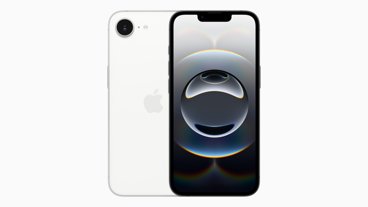

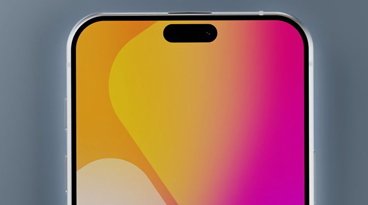
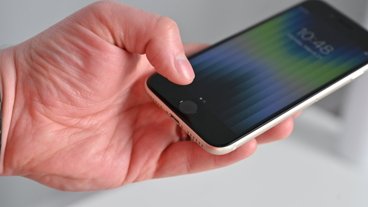

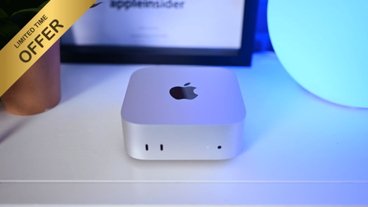

-m.jpg)





 Chip Loder
Chip Loder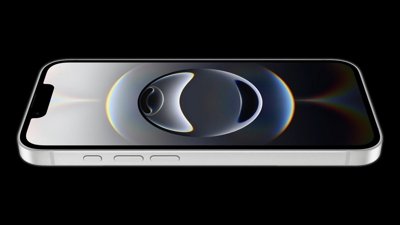
 Wesley Hilliard
Wesley Hilliard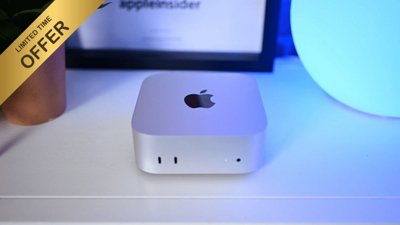
 Christine McKee
Christine McKee
 Amber Neely
Amber Neely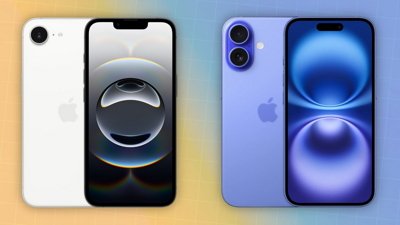
 Malcolm Owen
Malcolm Owen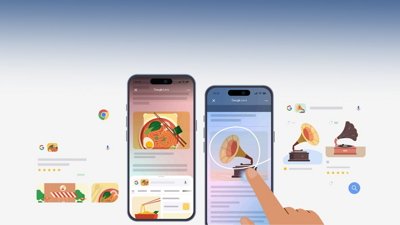
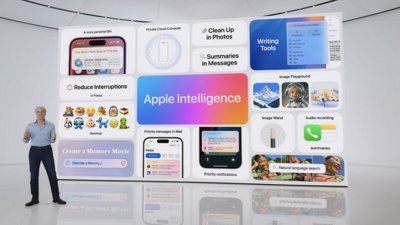
 William Gallagher
William Gallagher
 Andrew Orr
Andrew Orr


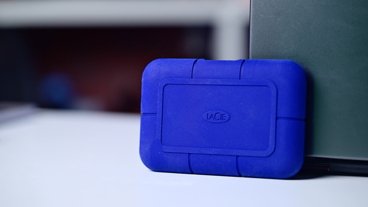





16 Comments
As the owner of a data center myself, I just can't fathom how big that bandwidth bill is each month.
Wow. Really, really, slow news day or what?
I'm starting to wish for "Steve Jobs has Cancer" stories again.
Wow. Really, really, slow news day or what?
I'm starting to wish for "Steve Jobs has Cancer" stories again.
Dude, common. I'm not going to stand for comments like that. And we like to cover all facets of Apple's business and diversify our content. This topic may be of little interest -- or boring -- to you, but hopefully some others will appreciate it.
K
Dude, common. I'm not going to stand for comments like that. And we like to cover all facets of Apple's business and diversify our content. This topic may be of little interest -- or boring -- to you, but hopefully some others will appreciate it.
K
Sorry, meant in jest only.
Makes you wonder just how much internet traffic originates from Apple.
If you consider a song is on average 3MB in size (and that doubles with iTunes+ songs) and Apple's current sell rate is about 2 billion songs a year, it means Apple pushes 6 Petabytes from songs alone. That's 6,000,000,000,000,000 Bytes!